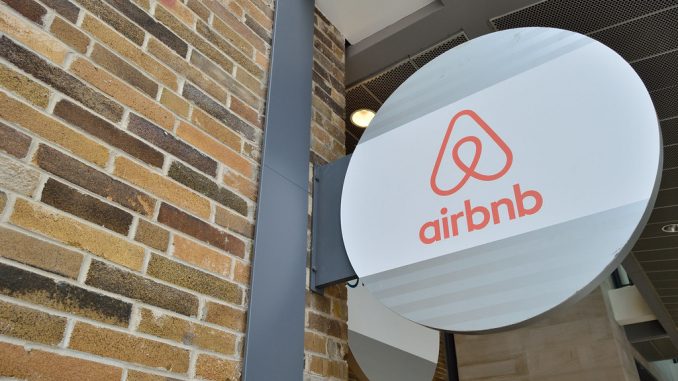
Airbnb is increasingly becoming a better choice for travellers, and its rise to prominence has had a definite impact on the hotel industry. As it grows it also has some drawbacks and areas for improvement.
This article will describe these in more detail.
What is Airbnb?
Airbnb is an online platform that provides accommodation for people. It offers both B&B hostels for people who are travelling and whole-house rentals or rooms for people with short-term rental needs. Travellers or renters in need can simply look on the website or mobile client to discover properties around the world that suit their needs and then book them to stay at a fixed time. People from all over the world who have spare rooms can offer them to Airbnb and put them to good use. In fact, that is a form of sharing economy. Airbnb offers travellers the convenience of booking B&Bs on an online platform compared to traditional hotels. It also provides a channel for people with a need for short-term rentals, and for landlords to rent out unused properties.
How Does Airbnb Work? Airbnb 101 Guide. (2016). Retrieved from https://www.youtube.com/watch?v=XDdIenqWknI.

History of Airbnb
Airbnb was founded in 2008. In 2007, Joe Gebbia and Brian Chesky were college friends. They are sharing a small flat in San Francisco. They were unemployed and hard to afford the rent at that time. However, during an industrial design conference, they suddenly spotted an opportunity to make some extra money. Almost all the hotels in the city were sold out at the time, so they came up with an idea to put three airbeds in the living room and rented them out to conference attendees. Breakfast was also served for them. Joe Gebbia and Brian Chesky thus found a lucrative business opportunity. They enlisted programmer Nathan Blecharczyk to design a website that would connect locals with available spaces with travellers who needed them. In that case, in 2008, the website of AirBed & Breakfast, the predecessor of Airbnb, was born.
In 2009, they simplified the name of the site to Airbnb. Additionally, the business on the site expanded from airbeds and shared spaces to offer many types of living space, including whole houses and flats, and even boats, manor houses, tree houses, igloos, tents, and other types of housing(Nguyen, 2014).
Areas of business and the business model of Airbnb
Airbnb’s main business is currently renting out vacant houses to people in need. Leisure travel currently dominates the Airbnb market. While Airbnb initially focused on giving accommodation to conference and major event attendees, these guests now represent only a small percentage of Airbnb guests(Guttentag,2016). This is because Airbnb is more cost-effective than hotels and people are willing to choose cheaper and relatively good-condition accommodation for short trips. As for hosts, the Airbnb platform does not set the price of the rooms or flats listed on its website. This means that the company gives owners the power to set the price they want.
Airbnb’s business model is a multilateral business model, connecting multilateral platforms. It connects lodgers, hosts, and a number of third-party service providers. If the number of hosts offering homes on the platform is high and the variety of homes available to guests is high, this will lead to an increase in the number of guests using the Airbnb platform to book homes. With more guests, many hosts see the possibility of making money by putting their homes on Airbnb and the number of hosts will increase as a result. That made it possible for Airbnb to build up a well-stocked pool of buyers and sellers(Dolnicar, 2017).
This constitutes a cycle that drives the development and smooth operation of the platform.

Is it successful?
Airbnb was founded with a lot of investment capital and in 2011 acquired German competitor Accoleo and opened its first international office in Hamburg, Germany. After this, Airbnb has grown in the international market and has established more and more international offices internationally(Nguyen, 2014).
With the growth of the sharing economy and the internet, online communities are becoming more and more popular. Participants in the online community can post comments on it and can gain trust through communication. Airbnb is a platform that operates through mutual trust between tenants and hosts and trust in the platform.
As the tourism industry grows, more and more travellers will consider choosing a more cost-effective B&B instead of a hotel. As travellers have seen the reviews of other travellers on the online platform and have chosen to trust Airbnb(Chua & Chiu & Bool, 2019). Moreover, for landlords, in addition to earning rent by renting out their vacant homes, may also be able to meet like-minded people through the platform(Dolnicar, 2017).
For Airbnb, it put a lot of effort into providing a value proposition, creating value, and communicating value. They go through different types of rooms to identify the right clientele. Ensuring that users are authenticated when they sign up for an account reduces the potential risk of some strangers staying in a stranger’s house. They will also provide some services to their guests beyond the accommodation, for example, the landlord may give the resident destinations in the surrounding area that are suitable for travel. In addition to this, in terms of creating value, the Airbnb platform understands the needs of guests and hosts as much as possible, which helps them to improve the functionality of the platform. They also keep costs low to run the platform and create as much value and revenue as possible(Dolnicar, 2017).
Those all can reflect Airbnb has been successful in a way.
How does it make money?
Airbnb platform’s revenue is mainly generated from the service fees charged to hosts and tenants. Airbnb can be defined as “a social networking site that connects people who are searching for a place to stay with people who are looking to vacate their space” and their business model is simple yet very innovative and useful(Bashir & Verma, 2016). Airbnb maintains a low-cost operation, which contributes to it bringing in big revenues(Guttentag,2016).

Some drawbacks and concerns
Airbnb has changed a lot from when it was first founded. It will probably change again in the future. It does not currently cater on a large scale to markets that have a special need, such as elderly travellers or people with disabilities. In addition, as Airbnb grows into a business model that operates on a larger scale, this may affect the user experience for some users(Dolnicar, 2017).
The development of the platform has not always been smooth, and there have been some regulatory issues with Airbnb before. There will certainly be a shift in the direction of Airbnb in the future, and with that shift may come more questions about the users and the platform itself. In terms of regulation, Airbnb has come under scrutiny several times for exposing hosts to potential property damage. There have been instances where homes have been vandalized by tenants, where tenants have left used condoms and other items in their rooms, and even where hosts have had their belongings stolen. Environmental and hygienic conditions are not always guaranteed either(Nguyen, 2014). Platforms should be more strictly regulated regarding these potential problems to protect the rights of both residents and landlords.
Conclusion
In conclusion, Airbnb is an emerging form of sharing economy and a highly innovative platform. Its emergence had an impact on the traditional hotel industry and it has created a certain amount of impact in a short period of time. On that level, it has been very successful. However, Airbnb must not only focus on its booming trend but also take into account its potential problems and adapt its operating model in line with the times.
References
Bashir, M., & Verma, R. (2016). Airbnb disruptive business model innovation: Assessing the impact on hotel industry. International Journal of Applied Business and Economic Research, 14(4), 2595-2604.
Chua, E. L., Chiu, J. L., & Bool, N. C. (2019). Sharing economy: An analysis of Airbnb business model and the factors that influence consumer adoption. Review of Integrative Business and Economics Research, 8, 19.
Dolnicar, S. (2017). Peer-to-peer accommodation networks: Pushing the boundaries (p. 284). Goodfellow Publishers.
Guttentag, D. (2016). Airbnb: why tourists choose it and how they use it. University of Waterloo,(August), 1â, 28.
Nguyen, Quynh, “A Study of Airbnb as a Potential Competitor of the Hotel Industry” (2014). UNLV Theses, Dissertations, Professional Papers, and Capstones. 2618. http://dx.doi.org/10.34917/8349601




